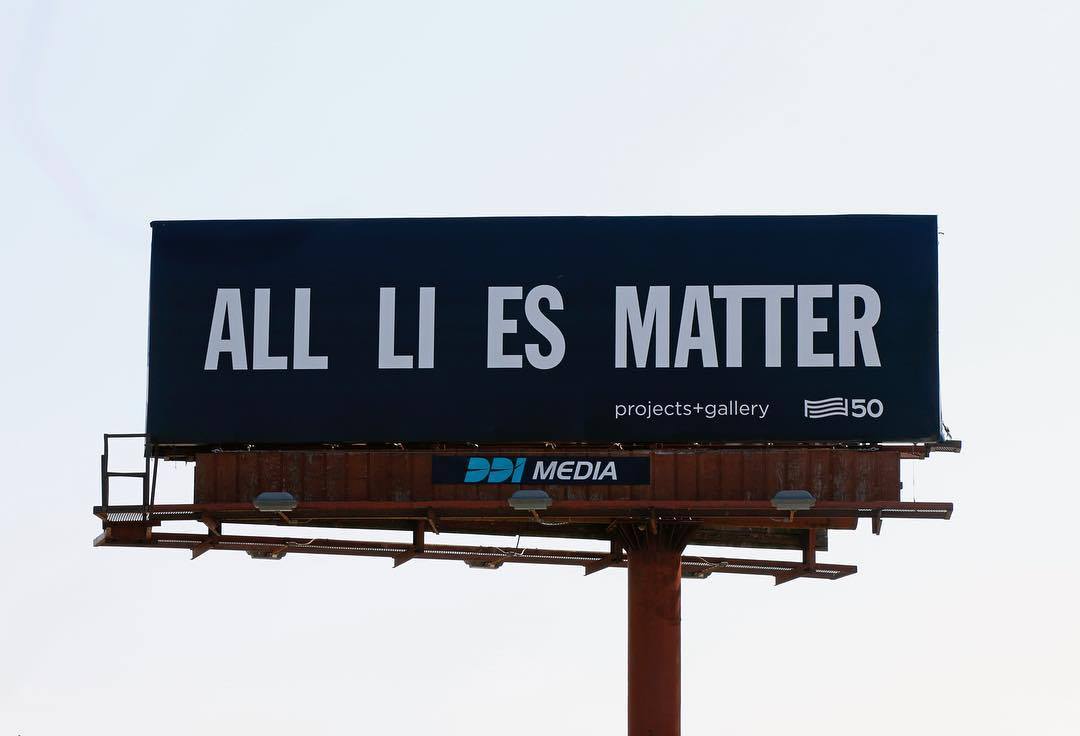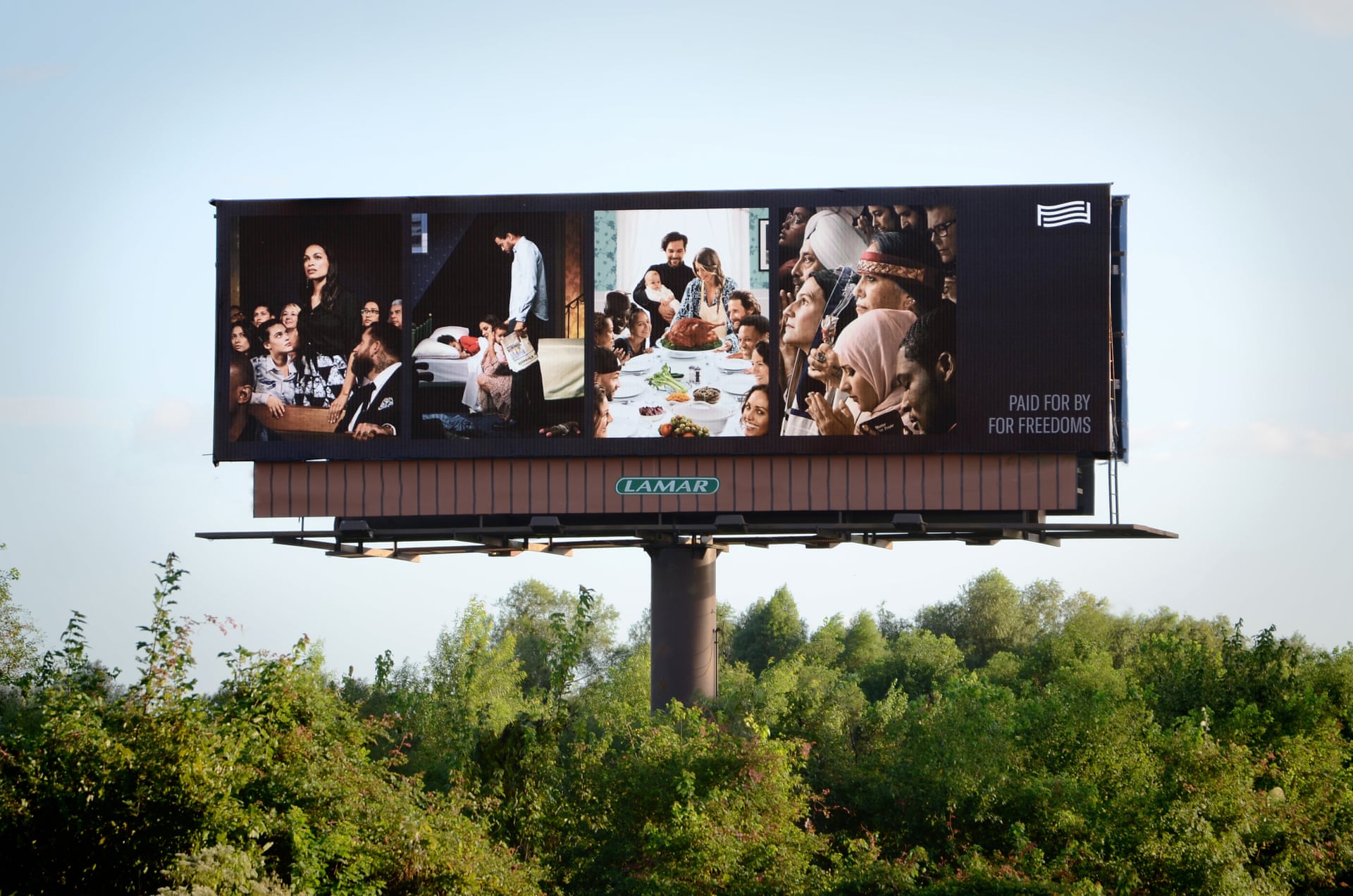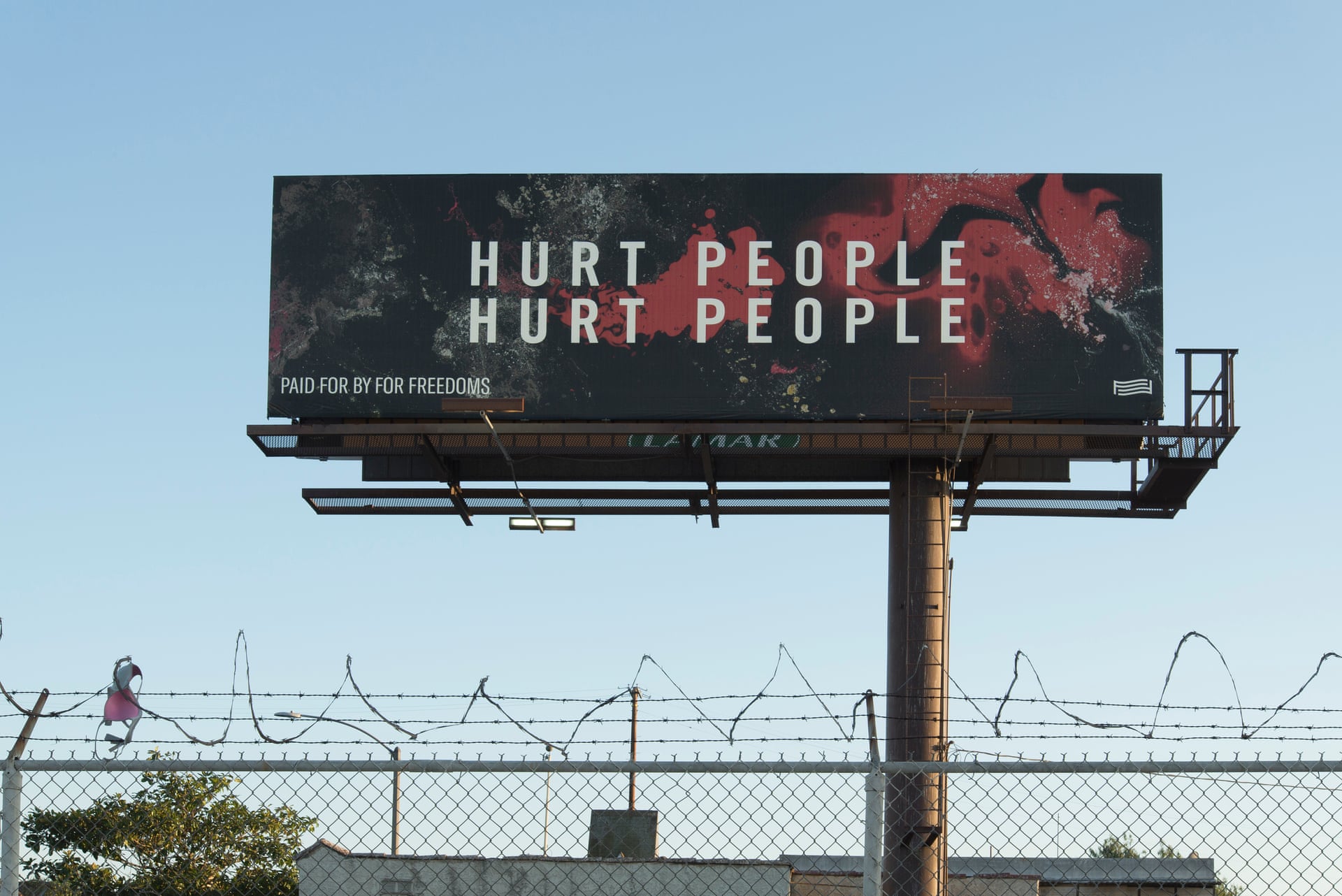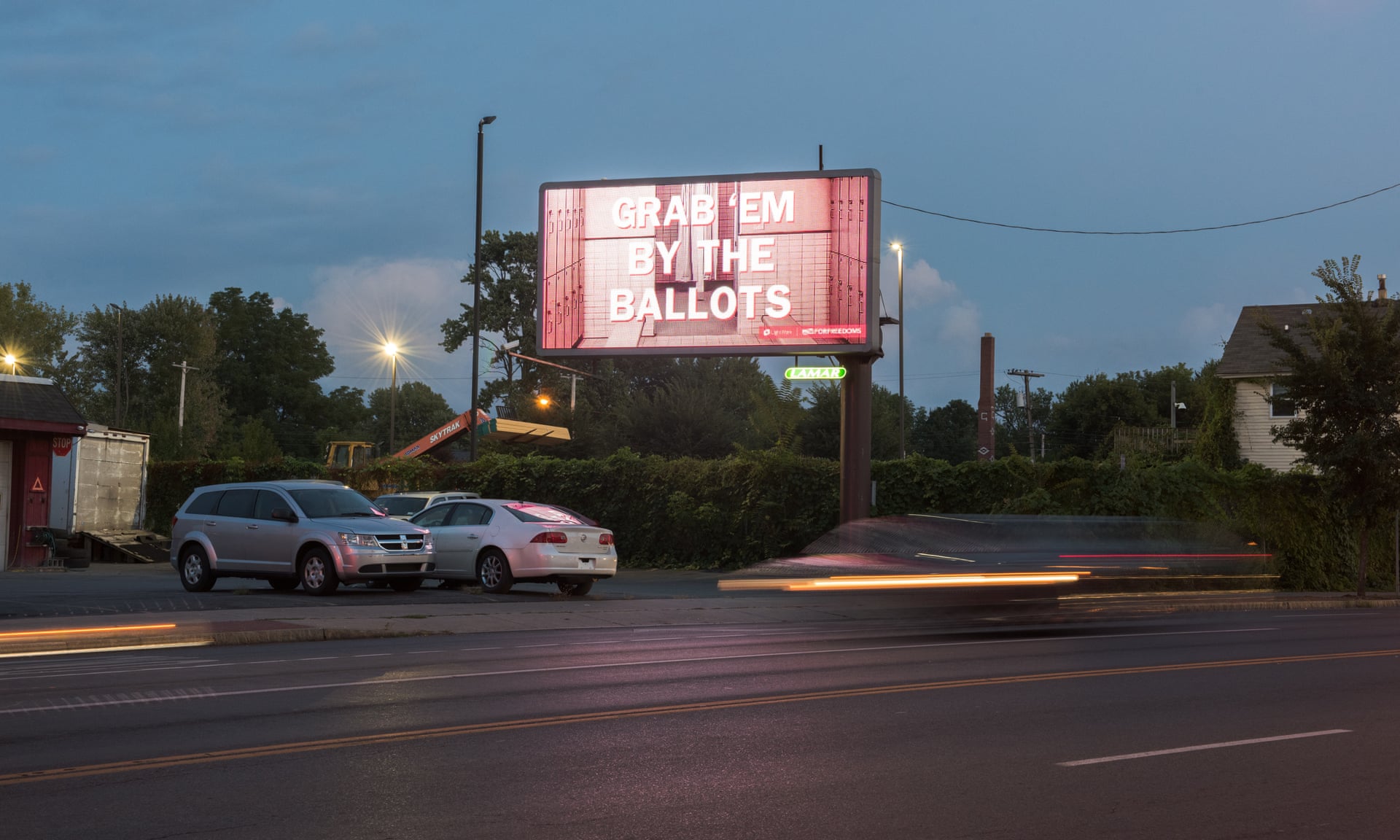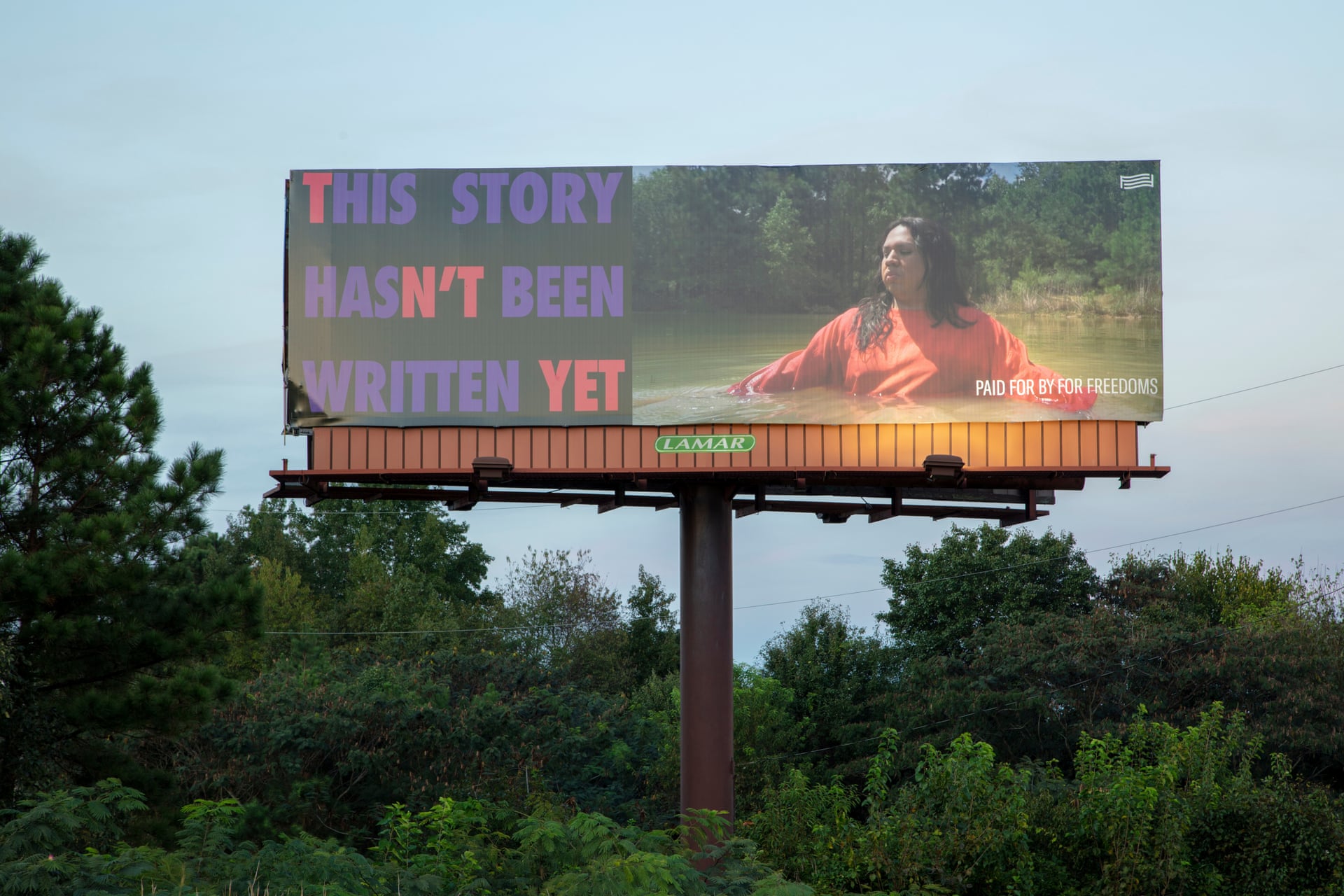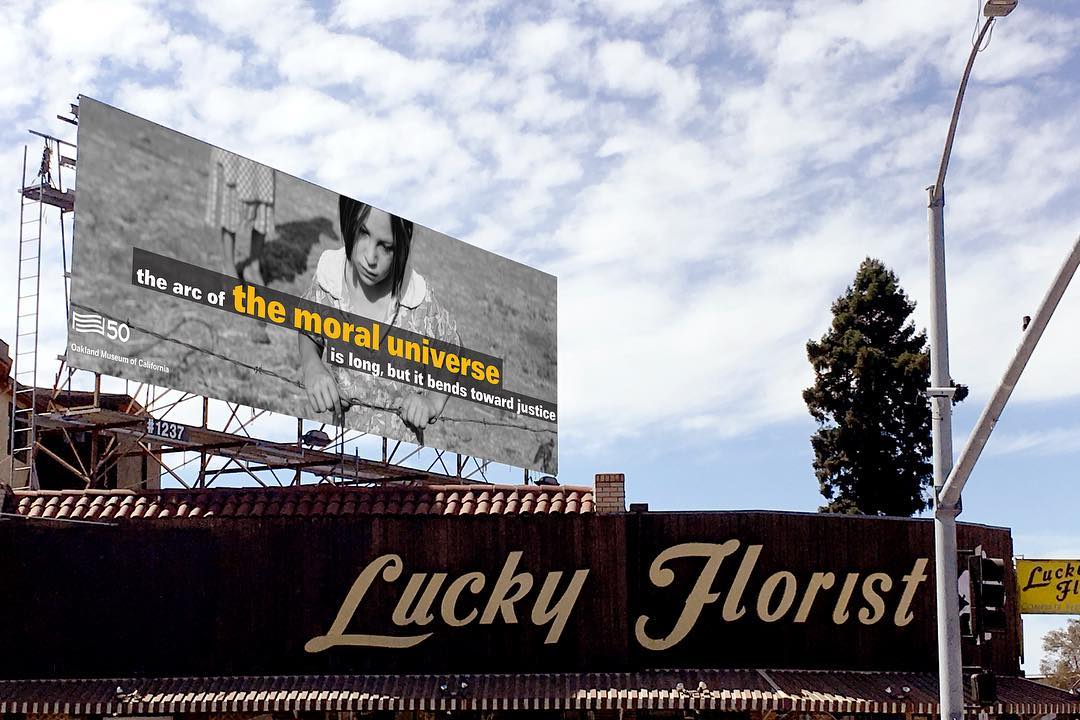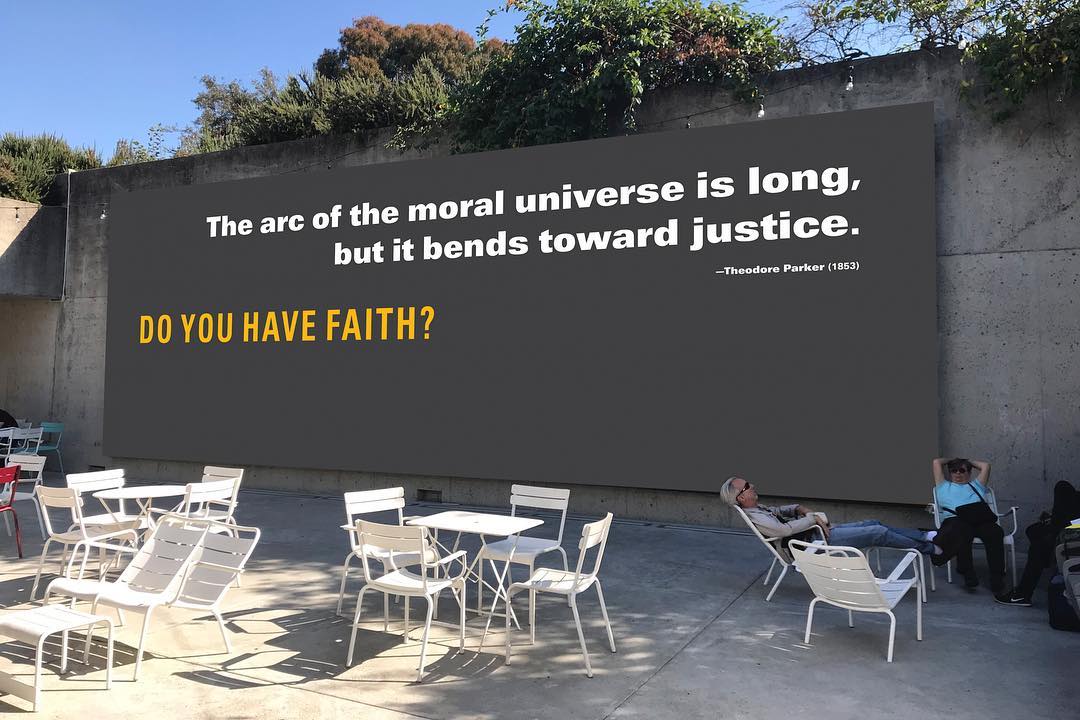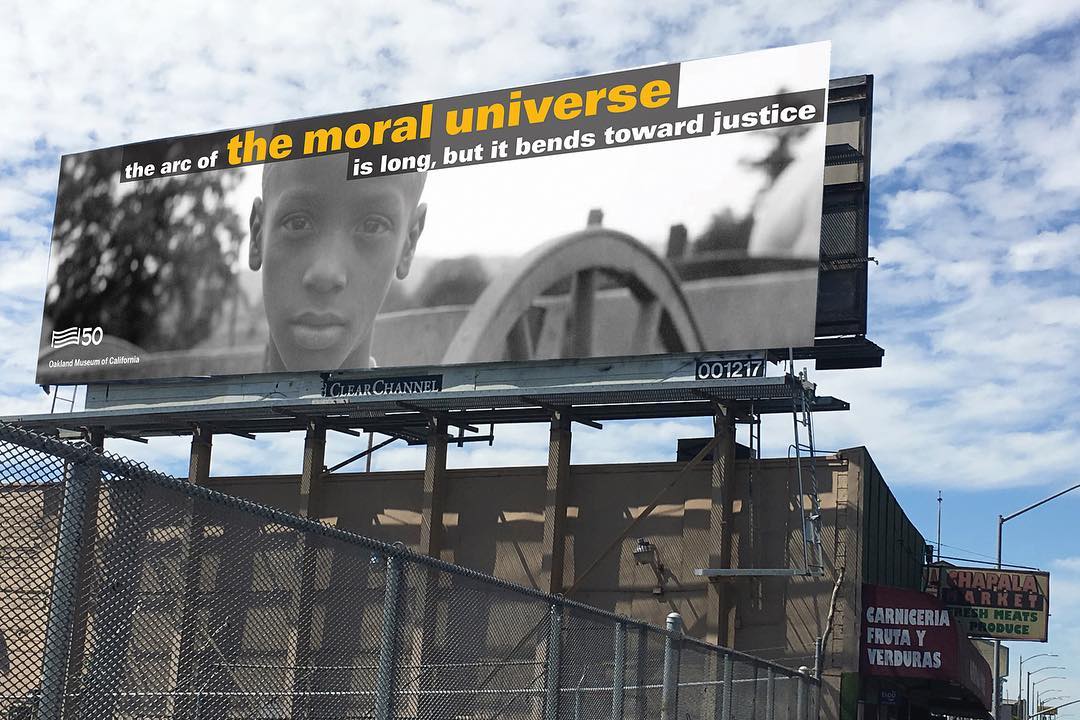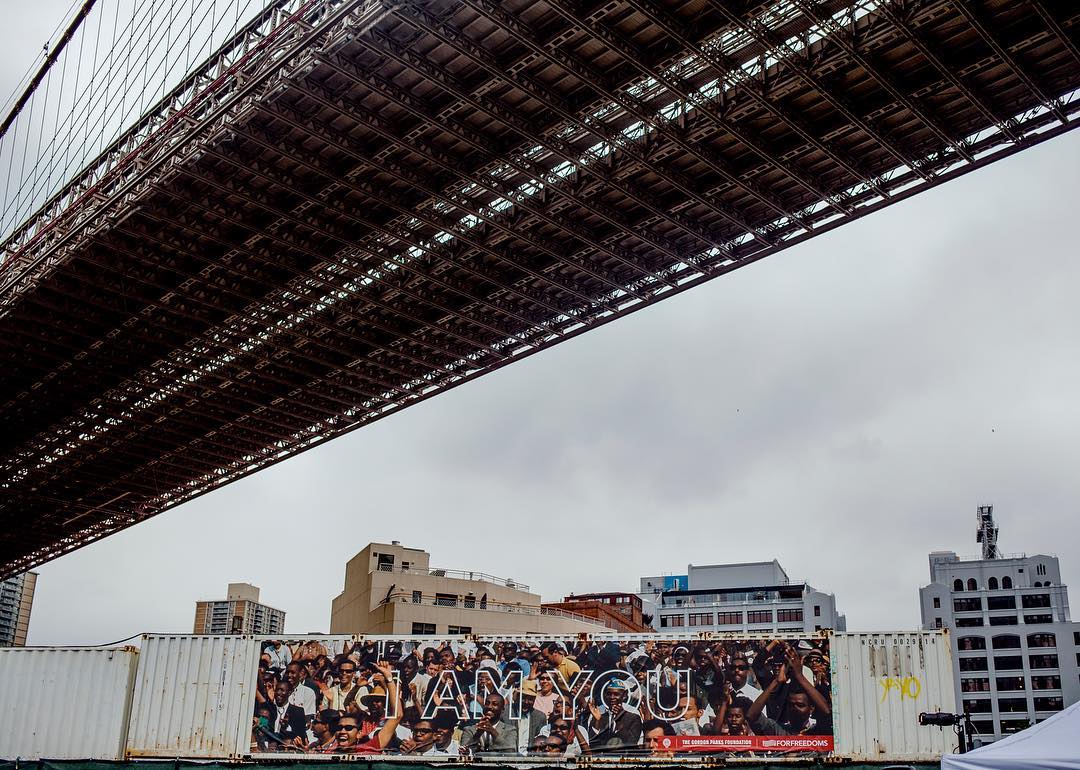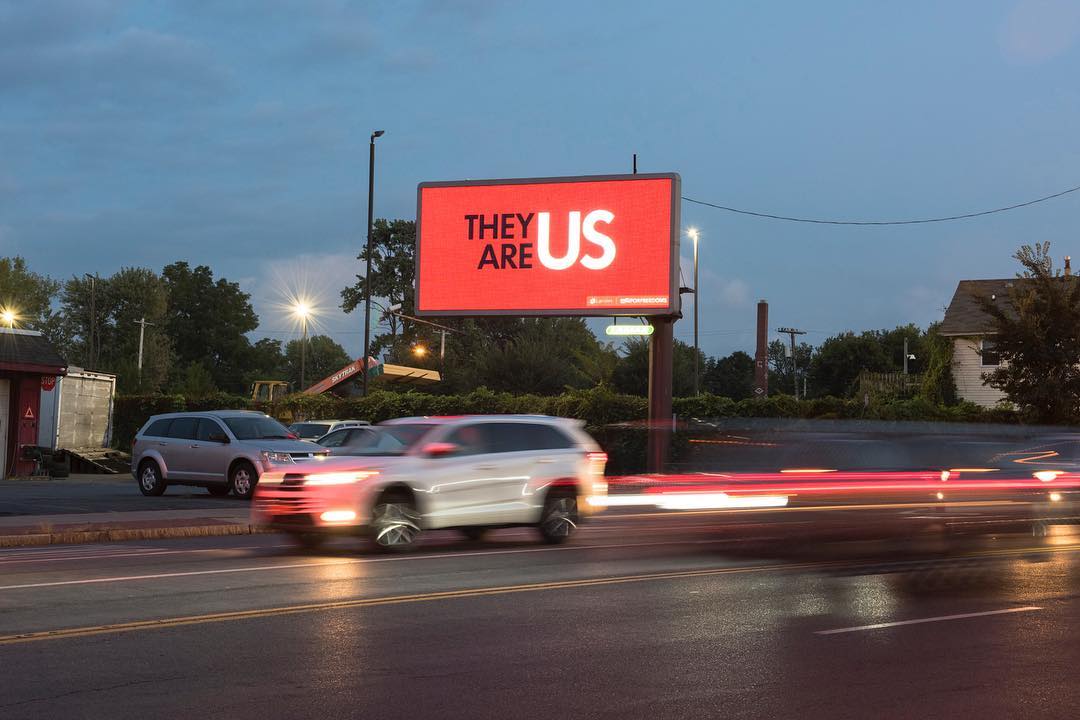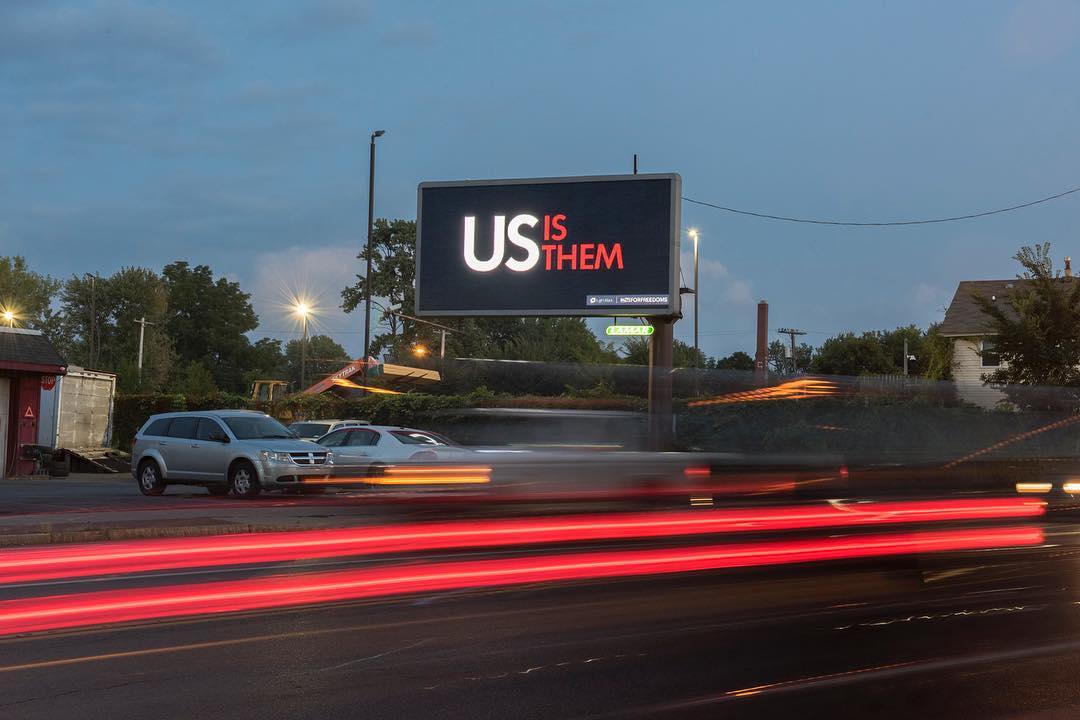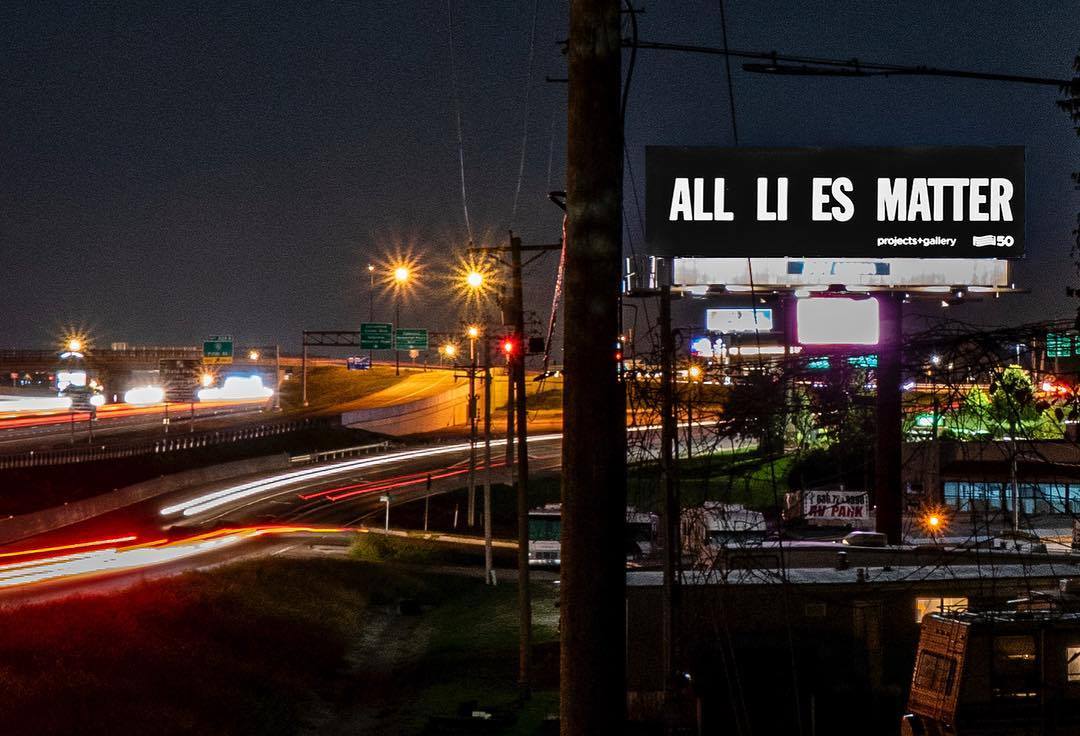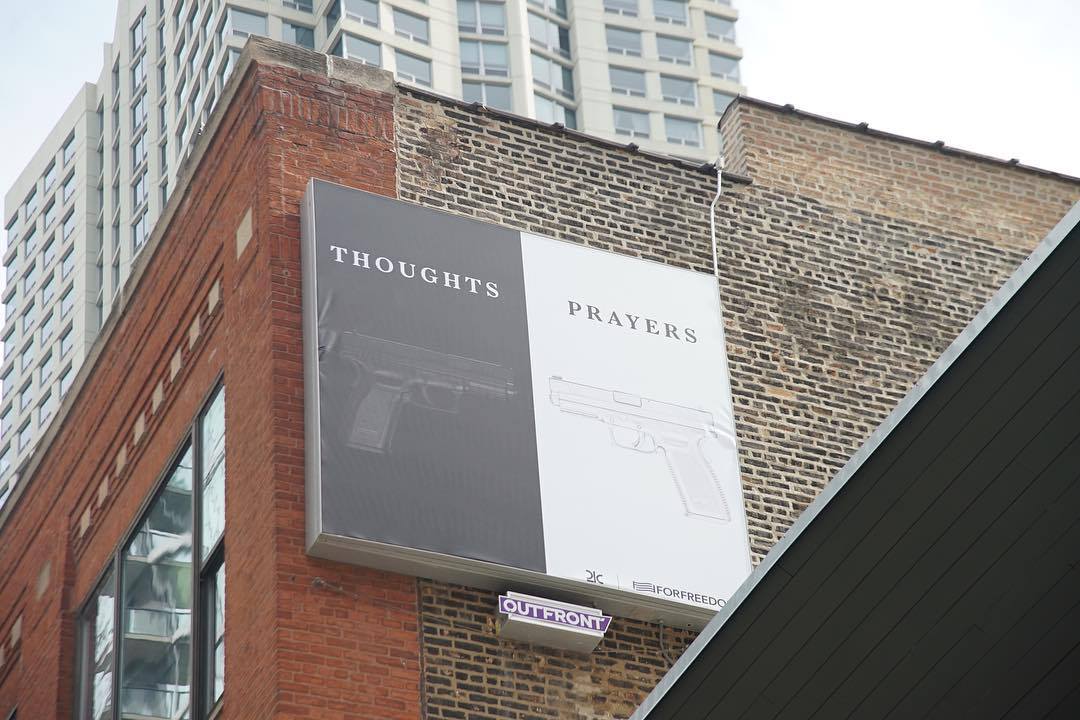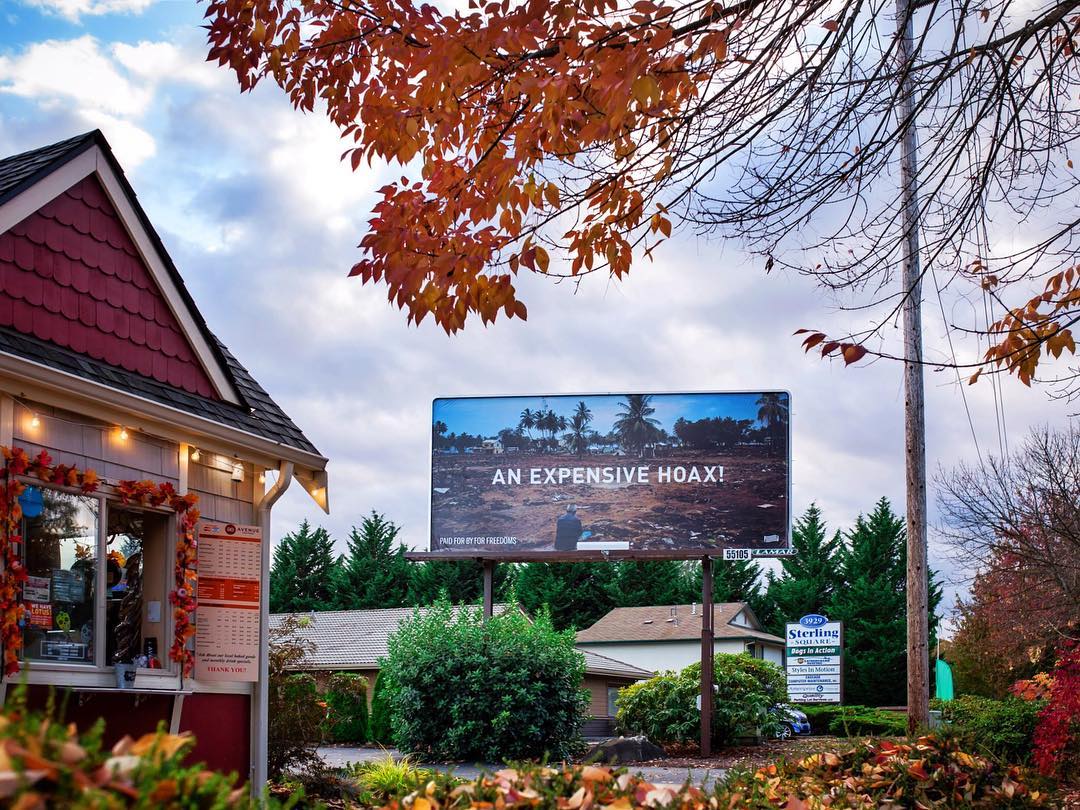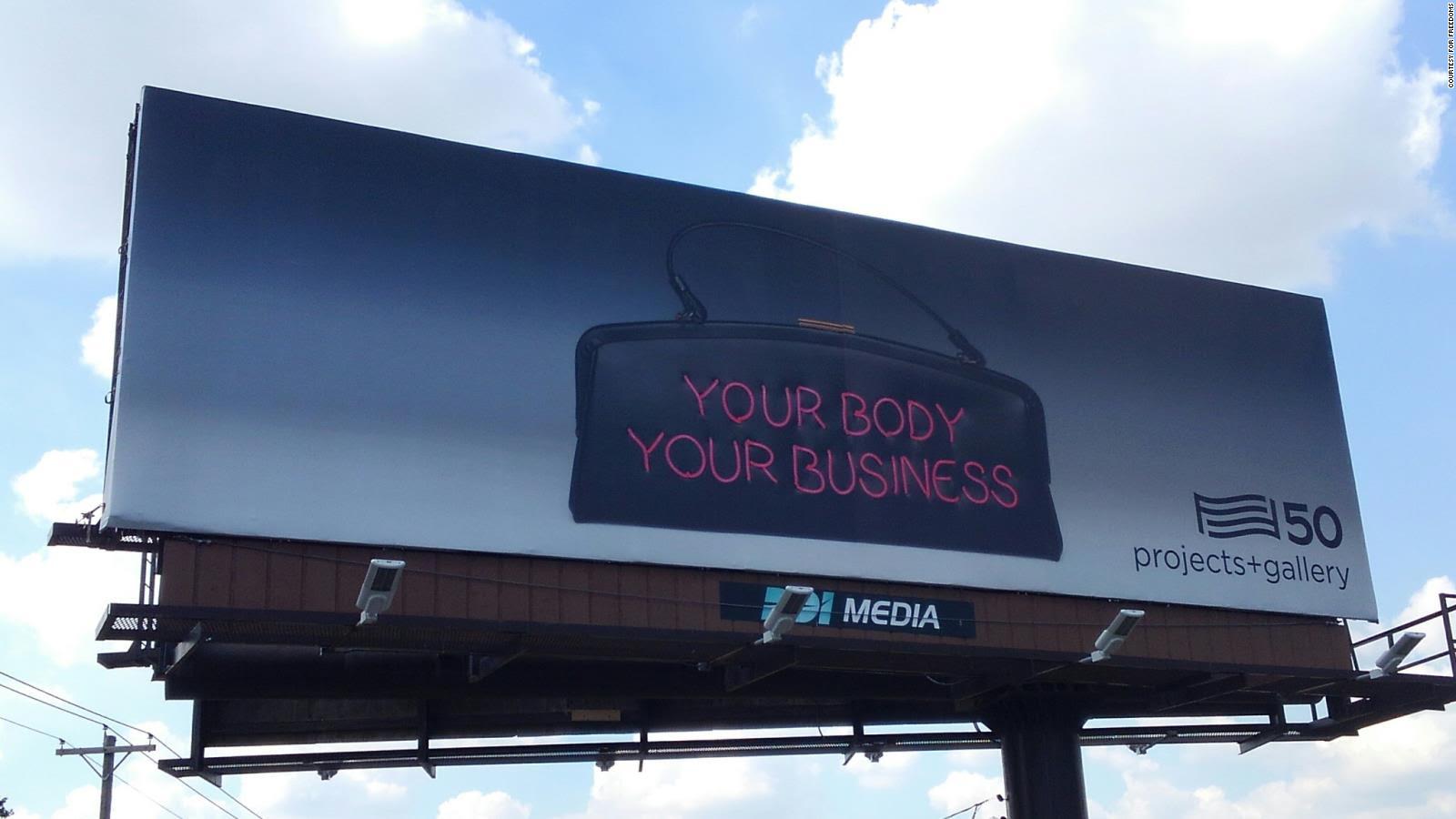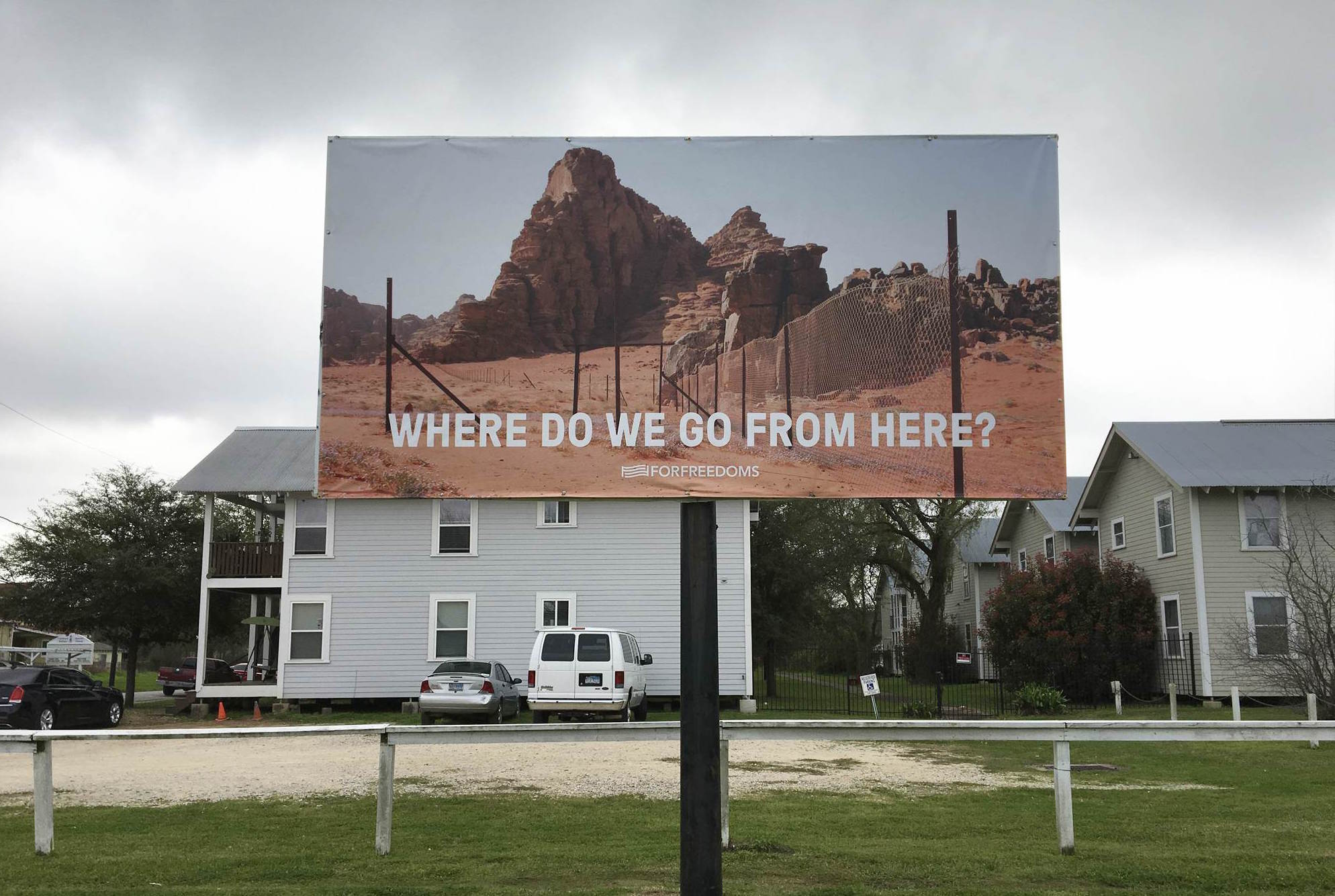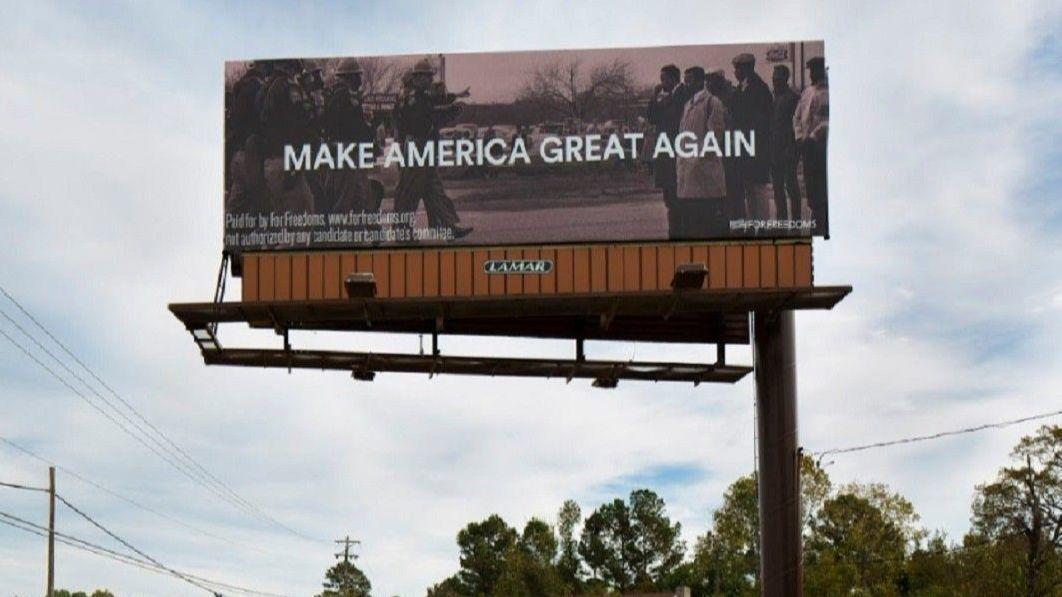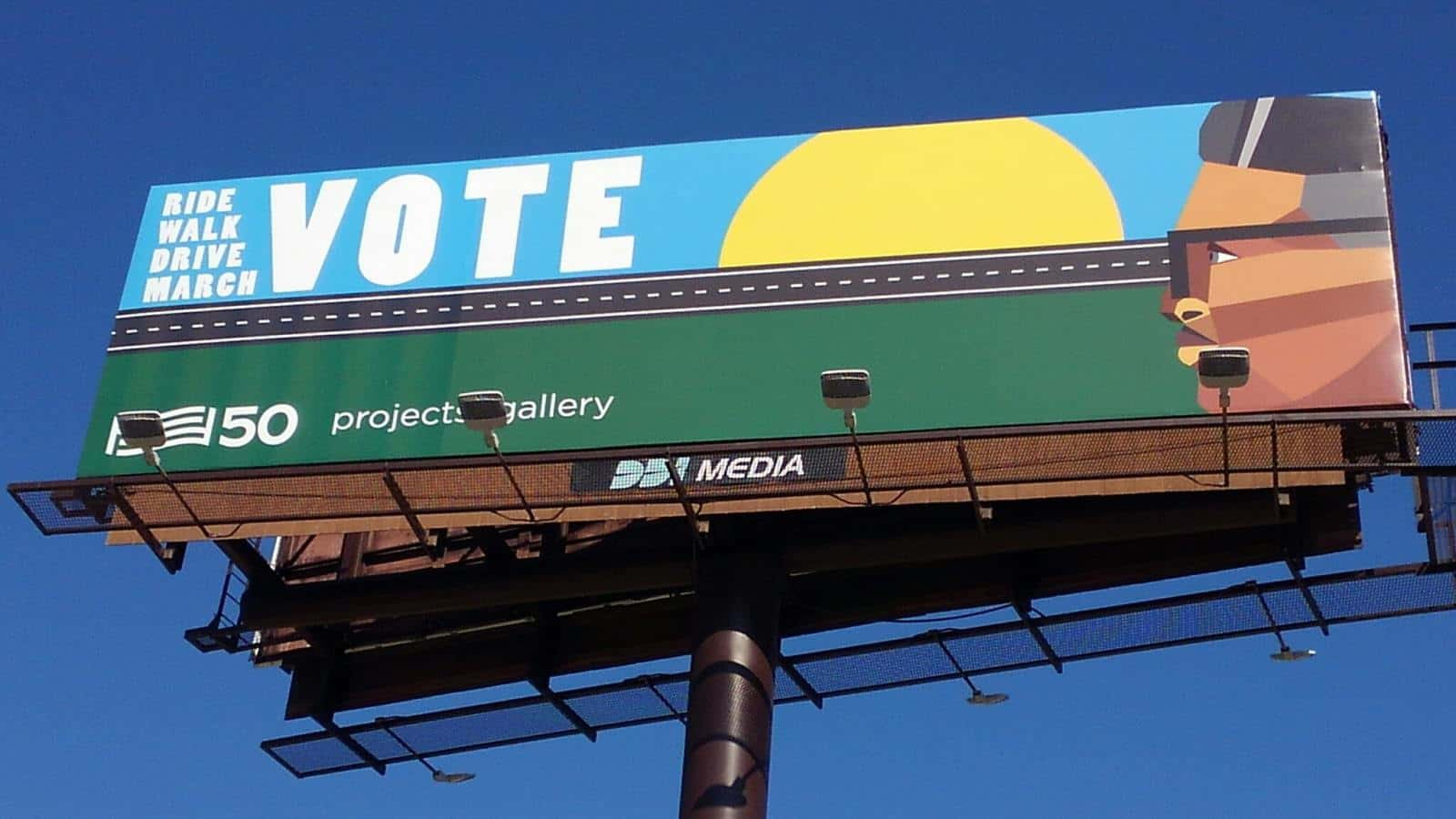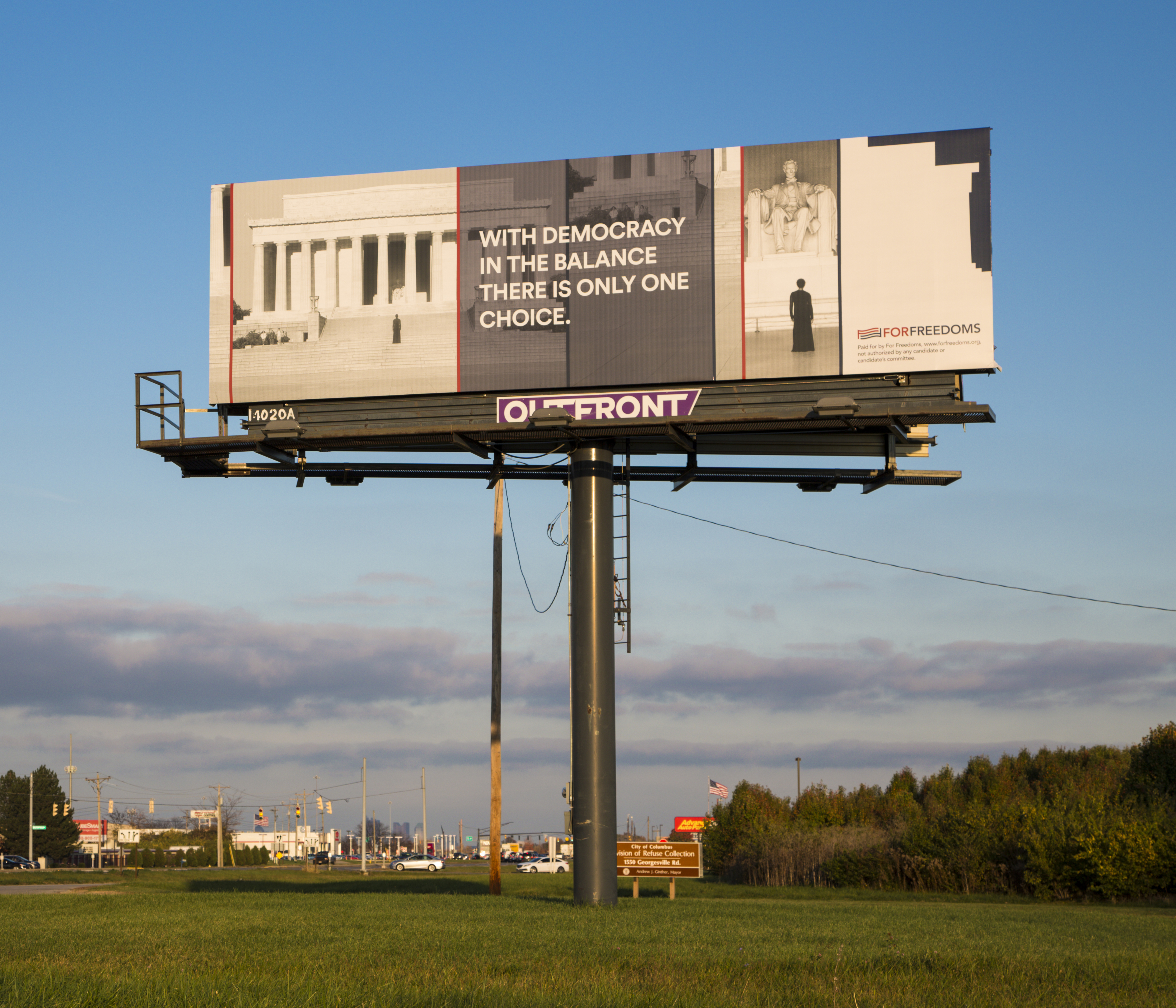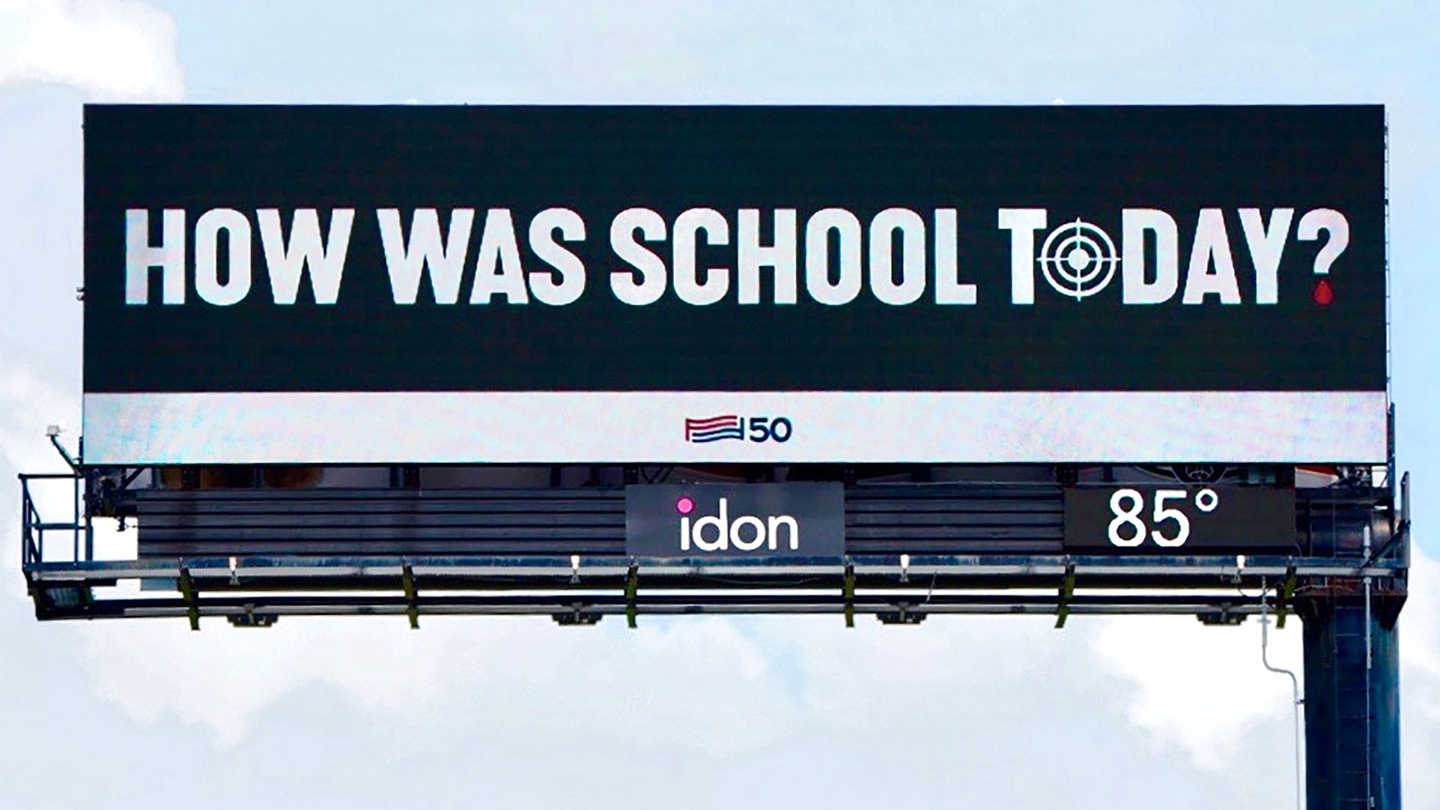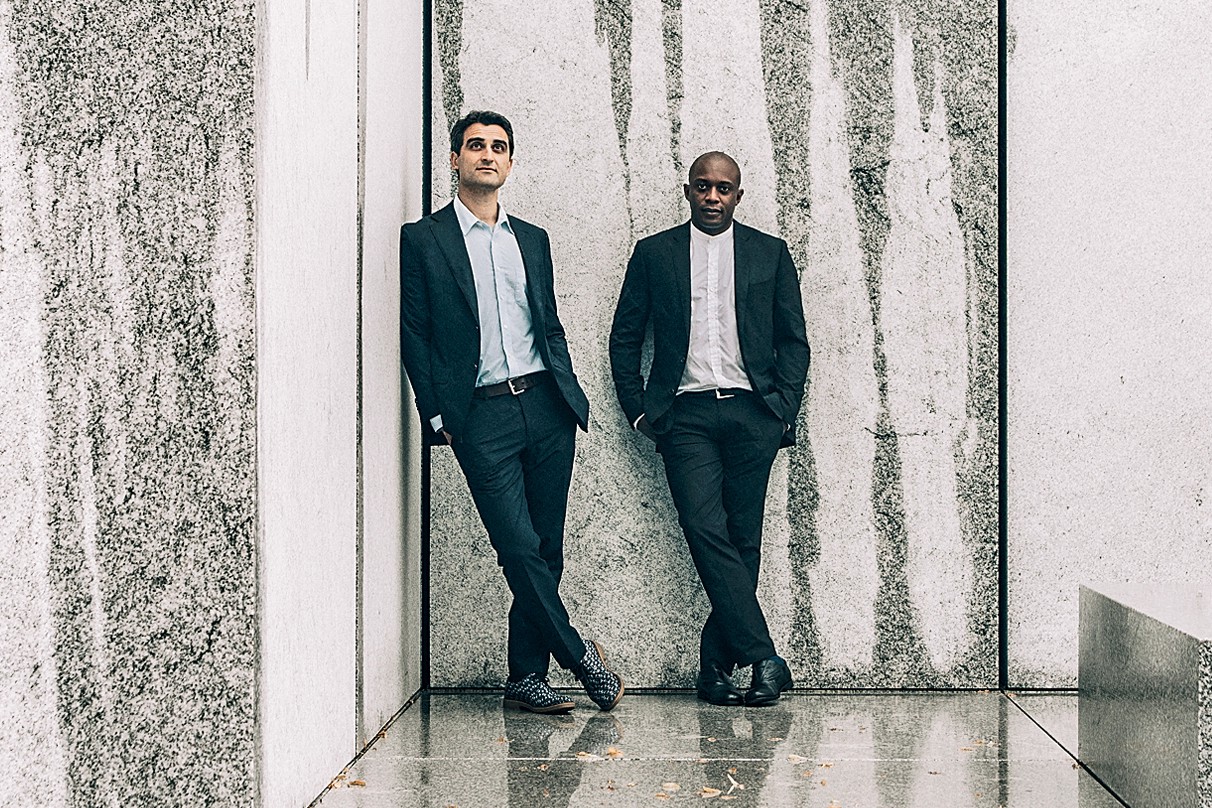Somewhere along the I-95 in Philadelphia, a billboard spells out two words in Trump’s campaign font: Pardon Me.
This is just one of the challenging artist-designed billboards that have gone up across the US this week as part of the 50 State Initiative, arguably the country’s largest public art project. The crowdfunded spectacle allows artists to have their say – and perhaps their influence – ahead of the midterm elections.
“One guy wrote us and said: ‘I see this ‘Pardon Me’ billboard every day on my way to work, can you tell me what this means?’” said Wyatt Gallery, the billboard director at For Freedoms, the New York organization behind the project. “He asked: ‘What side are you on? Are you pro-Trump or anti-Trump?’ People can’t figure out what side we’re on, or if there is a side. It makes people think more and to reach out and ask us.”
The goal, according to the For Freedoms co-founder Eric Gottesman, is to make “anti-partisan” statements on the billboards, alongside art exhibitions, installations and public programs to deepen what he calls “civic participation.”
“It’s not just voting, it’s about using our voices to speak up about the things we feel strongly about,” said Gottesman. “We believe all art is political, so when artists get engaged, the conversation changes. It’s important for artists’ voices not to be marginalized or only to be seen in these elite institutions, but be more at the center of public life.”
Each billboard is emblazoned with the For Freedoms logo, which is how people find them online. “People look us up or call the billboard company to inquire what the billboards mean,” said Gallery. “That’s a huge sign of success, that people are willing to take that step.”
There are more than 50 billboards designed by artists, which will be up through the end of November. More than 200 institutions and 400 artists across the country will be hosting talks, projects and exhibits related to political art in partnership with the organization.
Among the billboards, Fred Tomaselli’s shows a map of America accompanied by the sentence "I’ve Fallen and I Can’t Get Up" in Helena, Montana. Meanwhile, Paula Crown has created a billboard that says "Hurt People Hurt People" in Los Angeles.
New York photographer Marilyn Minter, known for her misty portraits of women behind glass, shows a piece entitled "Sad!" in Little Rock, Arkansas, referencing an insult phrase the president has commonly used on Twitter.
“I chose ‘Sad!’ because I wanted to use and subvert a common Trump adjective,” said Minter. “It also describes the current state of our country and our administration, by using it, I was able to be as nasty as possible without being outright political.”
Others take a different approach, like William Scott and David Byrne, who show a billboard of African Americans with the tagline United States of Peace on view in Newark, New Jersey. Over in Las Cruces, New Mexico, Richard Misrach’s billboard features a foggy shot of the Mexican border wall with the phrase Romans 13:10 (It refers to a Bible verse: “Love does no harm to a neighbor”).
Luis Jacob, a Canadian artist, is showing a billboard in Vermont entitled Land Acknowledgement, which reads Abenaki, the name of the tribe based in the region. “This piece engages the politics of indigenous land sovereignty on colonized territory,” said Jacob, who teaches art at the Vermont College of Fine Arts.
“It also poses questions about my relationship, as a Canadian artist born in Peru, to this place now called Vermont, where I teach,” he says.
As a response to Jacob’s billboard, a member of the Vermont Commission on Native American Affairs contacted the artist. “He said he found the artistic concept behind the image compelling,” said Jacob, “and hoped the project would help build connections between the Abenaki community, artists and institutions, such as VCFA, to improve relations.”
Over in Idaho, Emily Hanako Momohara is showing a billboard that reads "Never Again Is Now," alongside images of Japanese Americans from the second world war. It ties into the artist’s own past.
“My family was incarcerated at Minidoka which is located in southern Idaho,” she said. “When asked to do a billboard, my first inclination was to show the parallel of the unconstitutional incarceration in 1942, family detention and child imprisonment of migrant people on our southern border.”
All of the billboard artists were chosen by a curatorial team. “The guidelines were anti-partisan,” said Gottesman. “It’s not about taking sides, it’s to ask questions, even if they don’t end in a question mark.
“Often the response to the billboards is a question: ‘What does this mean?’” he adds. “We say: ‘What do you think it means? We don’t know, help us figure out what this means together.’”
Some of the billboards are specific to certain cities. “Some artists felt like a certain part of the country would make sense,” said Gallery. “Others wanted to be as close to the Mexican border as possible, or in certain regions. We tried to honor those wishes to create a dynamic conversation.”
One example is Jamila El Sahili’s billboard along a highway in Michigan, which spells out the words Human Being in Arabic (with no translation). “We put that in Michigan where there is a woman running for Congress who is Muslim and there is a large Arab population,” said Gallery. “We tried to match cities with the issues and the art.”
Crown’s other billboard, Thoughts and Prayers, which has two guns pointing at another, is set in Wyoming, the state with the highest number of guns per capita. “We also put it in Chicago which has a large problem with gun violence,” adds Gallery.
Over in Baltimore, Steve Lock’s billboard is a memorial for Freddie Gray, the 25-year-old man who died after suffering a spinal injury in the back of a police van.
Another is Emily Jacir’s billboard, which says Translate Allah, on display in Salem, Massachusetts. Locals are responding. “People are calling the billboard company and asking ‘what is this about?’” said Gallery. “People are taking notice as to what these billboards mean in the context of what’s happening today.”
When asked if they’ve received any hate mail yet, Gottesman said, “not yet, and ‘yet’ is the key word.”
Many of the billboards are along highways of rural areas. In a way, they catch people off guard while driving, often a time of solitude or reflection. But the billboards are intentionally timed to coincide with the midterm elections and ultimately, they could change the way Americans look at art, politics and the role of advertising in public space. “We want to add more nuance in the kind of conversation we have in public about these issues,” said Gottesman. “By inserting artist voices into the landscape, and into the public conversation, we hope to do that.”
Originally published by The Guardian

